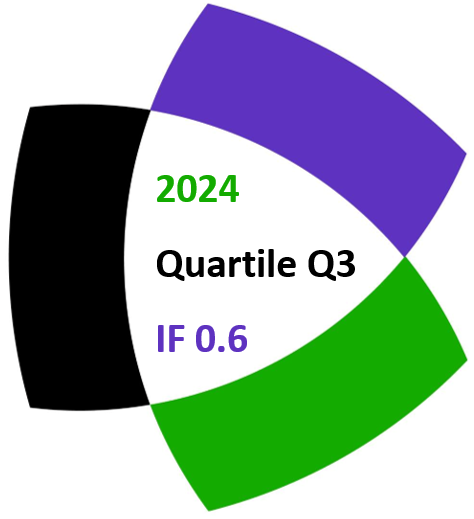Dongkyu Lim
Notes on Number Theory and Discrete Mathematics
Print ISSN 1310–5132, Online ISSN 2367–8275
Volume 29, 2023, Number 3, Pages 421–425
DOI: 10.7546/nntdm.2023.29.3.421-425
Full paper (PDF, 164 Kb)
Editorial correction (PDF, 161 Kb)
Details
Authors and affiliations
Dongkyu Lim ![]()
![]()
Department of Mathematics Education, Andong National University
Andong 36729, Republic of Korea
Abstract
In this note, an attempt has been made to generalize the well-known and useful Riordan’s combinatorial identity via a hypergeometric series approach.
Keywords
- Combinatorial identity
- Hypergeometric series
- Hypergeometric identities
- Riordan identity
- Reed Dawson identity
- Knuth’s old sum
2020 Mathematics Subject Classification
- Primary: 05A10, 33C20
- Secondary: 40A25
References
- Andrews, G. E. (1974). Applications of basic hypergeometric functions. SIAM Review, 16(4), 441–484.
- Choi, J., Rathie, A. K., & Harsh, H. V. (2004). A note on Reed Dawson identities. Korean J. Math. Sciences, 11(2), 1–4.
- Kim, Y. S., Rathie, A. K., & Paris, R. B. (2018). Evaluations of some terminating series 2F1(2) with applications. Turkish Journal of Mathematics, 42(5), 2563–2575.
- Prodinger, H. (1994). Knuth’s old sum – a survey. EACTS Bulletin, 52, 232–245.
- Rainville, E. D. (1960). Special Functions. Macmillan Company, New York.
- Riordan, J. (1971). Combinatorial Identities. John Wiley & Sons, Inc., New York.
- Roy, R. (1987). Binomial identities and hypergeometric series. The American Mathematical Monthly, 94(1), 36–46.
Manuscript history
- Received: 26 October 2022
- Revised: 25 April 2023
- Accepted: 1 June 2023
- Online First: 6 June 2023
Copyright information
![]() Ⓒ 2023 by the Author.
Ⓒ 2023 by the Author.
This is an Open Access paper distributed under the terms and conditions of the Creative Commons Attribution 4.0 International License (CC BY 4.0).
Corrigendum
- Adegoke, K. (2024). Editorial Correction to “A note on a generalization of Riordan’s combinatorial identity via a hypergeometric series approach” [Notes on Number Theory and Discrete Mathematics, 2023, Volume 29, Number 3, Pages 421–425]. Notes on Number Theory and Discrete Mathematics, 30(1), 211-212.
Related papers
Cite this paper
Lim, D. (2023). A note on a generalization of Riordan’s combinatorial identity via a hypergeometric series approach. Notes on Number Theory and Discrete Mathematics, 29(3), 421-425, DOI: 10.7546/nntdm.2023.29.3.421-425.


